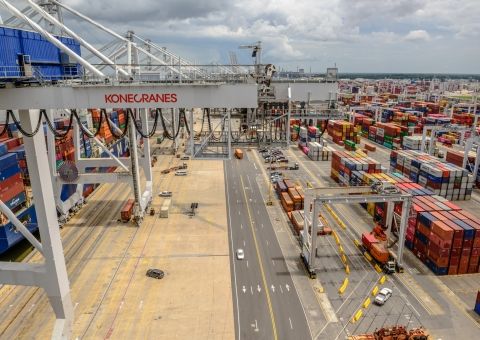The economies of the Asia Pacific Economic Cooperation (APEC) forum have made progress in the operation of Foreign Trade Single Windows, Authorized Economic Operators and in the simplification of procedures for imports and exports.
APEC is an intergovernmental forum for 21 Pacific Rim member economies that promotes free trade throughout the Asia-Pacific region.
APEC is made up of: Australia, Brunei Darussalam, Canada, Chile, China, Hong Kong, Indonesia, Japan, Korea, Malaysia, Mexico, New Zealand, Papua New Guinea, Peru, Philippines, Russia, Singapore, Taiwan, Thailand, United States and Vietnam.
According to ESCAP data, 10 economies in this forum had fully implemented an Electronic Single Window (ESW) in 2019, compared to seven economies in 2015.
Additionally, seven economies in the region had partially implemented an ESW in 2019, compared to five economies in 2015.
Meanwhile, the number of AEOs increased for both importers and exporters between 2014 and 2019.
According to data from the World Bank’s Doing Business Initiative, merchants in the APEC region spent less time completing border compliance and documentary procedures for export and import.
The time spent was reduced from 69 hours in 2015 to 59 hours in 2019 for export, and from 89 hours in 2015 to 75 hours in 2019 for imports.
APEC
Trade costs also decreased, and the cost of exporting and importing fell to a regional average of $ 422 and $ 476, respectively, in 2019.
In addition, many economies have introduced structural reform initiatives, including the enactment of new laws and regulations to improve the e-commerce environment and expand the application of secure and reliable information and communication technologies.
The number of secure servers in APEC economies (per million people) increased exponentially from 754 in 2014 to more than 17,000 in 2019.
Globally, APEC economies are home to more than 65% of the secure servers (totaling more than 50 million) in the world.
In the financial sector, the APEC Region Passport of Funds framework offers opportunities to remove or lessen key regulatory impediments to cross-border trade in managed funds.
Essential structural reforms in services could further support the performance of global value chains, particularly in service sectors that have a strong supportive role in business operations.
![]()

